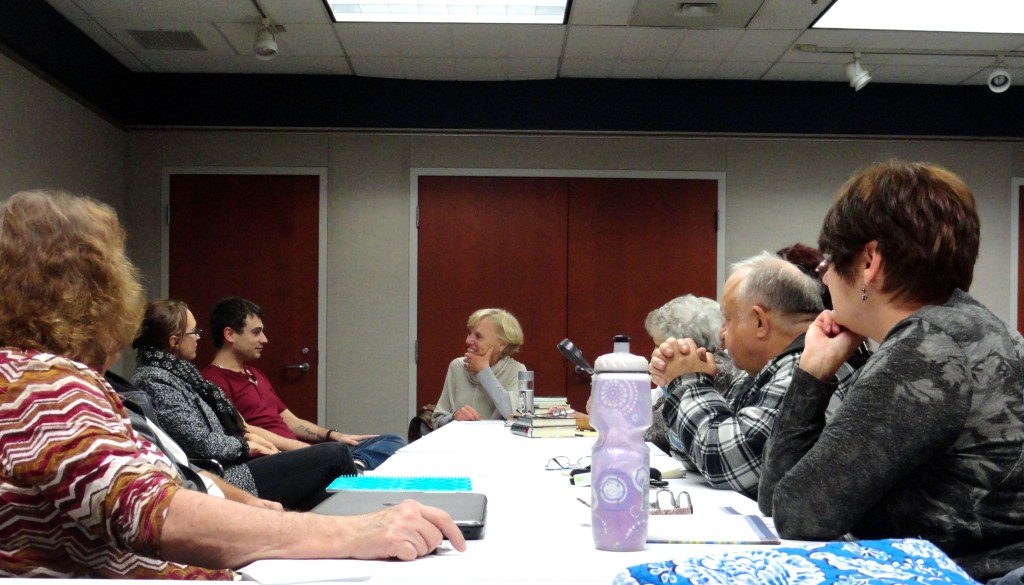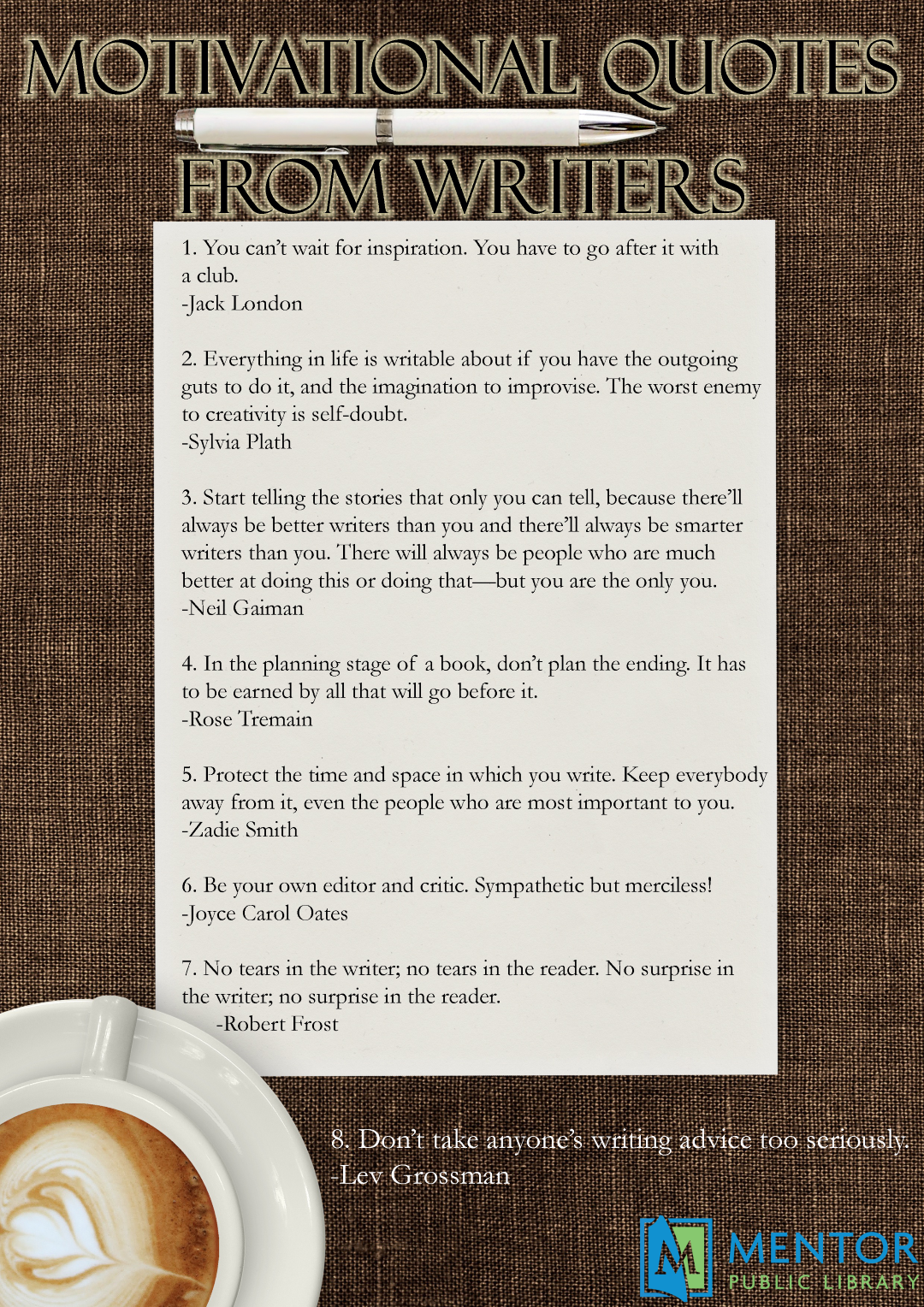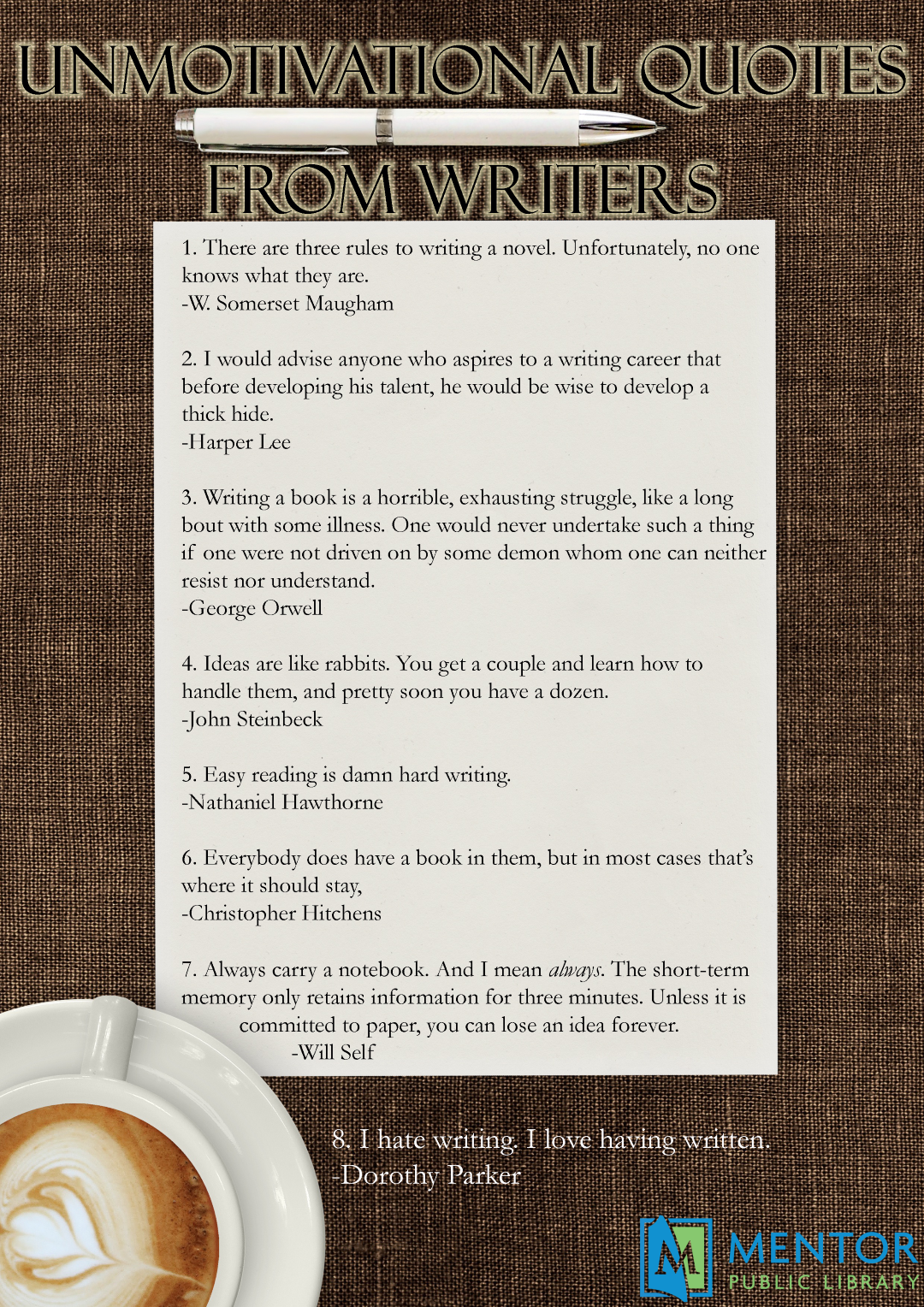5 writing tips from Paula McLain
Bestselling author and spectacular human Paula McLain visited us for National Novel Writing Month.
She discussed finding inspiration for her bestsellers, The Paris Wife and Circling the Sun, in Hadley Richardson and Beryl Markham, respectively. She also mentioned how a dream about Martha Gellhorn—a war correspondent and Ernest Hemingway’s third wife—inspired her newest novel, Love and Ruin.
She also offered some writing advice for aspiring authors, gleaned from her own life.
- You have to be open to inspiration. (“There’s an undeniable, not-subtle-at-all experience that happens to me when I find that inspiration. Now I know to pay attention to that feeling; and if I don’t have it, I’m not going to discover it along the way.”)
- If something you’re writing is not working, you can’t force it to work. Before writing Circling the Sun, McLain tried to write novels about Georgia O’Keeffe and Marie Curie. No matter how hard she tried, neither worked out—not because there’s anything wrong with the subject matter, but it didn’t resonate with her like Richardson, Markham, or Gellhorn.
- Read what you want to write. (“Read in the genre you want to write in. Read in the genre that’s important to you. Read as if your life depended on it.”)
- Keep books that inspire you close at hand. While writing The Paris Wife, those books were Colm Tóibín’s The Master and Michael Cunningham’s The Hours for McLain.
- Write your face off.



